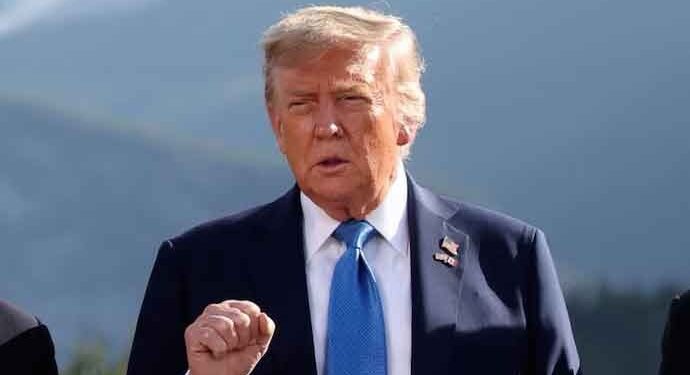Lagatar24 Desk
With US President Donald Trump ordering precision strikes on three Iranian nuclear sites, a new phase of strategic maneuvering has begun in the Middle East. For Iran, the strikes offer both a threat and an opportunity. Tehran must decide whether to respond militarily, risking escalation, or tactically delay retaliation and gain diplomatic ground—particularly against Israel, while avoiding direct confrontation with the United States.
Trump’s airstrikes: symbolic move, real bait
The airstrikes targeted Iran’s key nuclear facilities at Fordow, Natanz, and Esfahan—marking the first direct US assault on Iranian soil since the 1979 revolution. However, the precision and limited nature of the strikes suggest a calculated move by Trump. “Iran must now make peace. If they do not, future attacks will be far greater,” Trump warned. This messaging presents Iran with a dilemma: retaliation would provide the US with justification for a broader military campaign, while restraint may be viewed as weakness domestically.
Iran condemns but recalibrates
Iran’s Foreign Ministry condemned the attacks as “criminal aggression” and a violation of the UN Charter, blaming US collusion with Israel. Tehran has urged the UN Security Council to intervene, but its military response remains measured. Official statements stressed Iran’s right to defend its territory but stopped short of declaring retaliatory strikes. This restraint may be strategic, aimed at keeping the conflict regional—focused on Israel—rather than expanding it to include the US directly.
Why Iran may avoid direct US retaliation
A direct strike on US forces would risk overwhelming retaliation and international isolation. Instead, Iran may opt for continued attacks on Israeli targets, pressuring Tel Aviv while exposing any further US military involvement as disproportionate. This would allow Iran to frame itself as the victim of aggression, complicating the narrative for Washington and bolstering Tehran’s standing in global diplomatic forums.
Trump’s diplomatic fix or gamble?
Trump’s decision comes at a time of heightened scrutiny. While it may appear strong on the surface, it contradicts his long-held anti-war stance. Domestically, Democrats have criticized the escalation, and even within the Republican base, skepticism is growing. Trump’s credibility as a peacebroker—especially after Pakistan’s backing for a Nobel Peace Prize—could suffer if the conflict drags on. The India-Pakistan ceasefire he previously claimed credit for has already been publicly attributed by New Delhi to bilateral military channels, not US intervention.
Iran’s win-win: ambiguity as strategy
The airstrikes also offer Iran a strategic loophole. Amid talk of exiting the Nuclear Non-Proliferation Treaty (NPT), Tehran may instead adopt a policy of ambiguity. By claiming wartime disruptions have affected its enriched uranium stocks, Iran can distance itself from formal treaty obligations without fully withdrawing. This allows it to shield its nuclear assets from future inspections while maintaining leverage in eventual negotiations.







